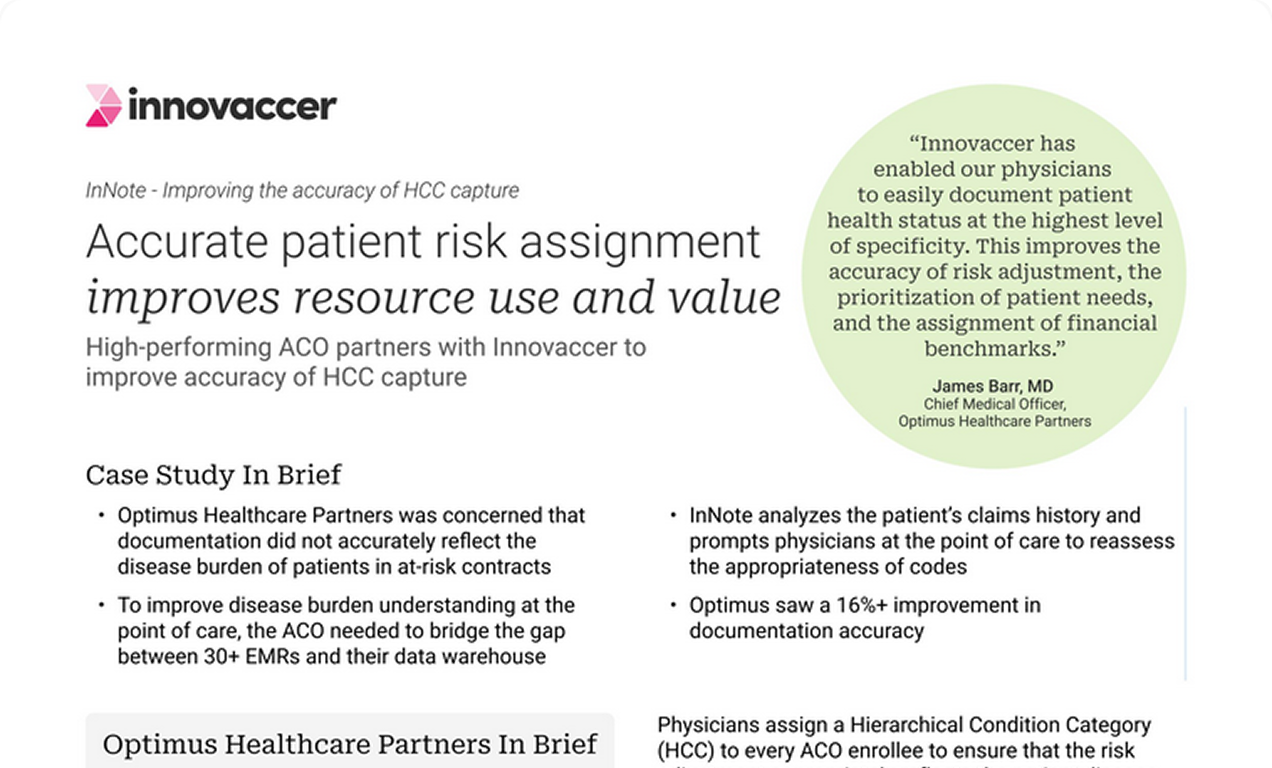Heading to NAMD? Five Ways Modern Data Systems are Shaping Medicaid

With NAMD just around the corner, conversations around recent developments in the Medicaid landscape are picking pace again. From the increasing importance of data interoperability and analytics to cross-sector collaboration for better patient outcomes, Medicaid systems are experiencing unprecedented changes. They are also grappling with the ongoing unwinding of the continuous enrollment and evolving needs of CMS interoperability. Improving existing data systems can enhance the ability of Medicaid agencies to address such problems.
Here's my take on the most exciting areas in Medicaid where robust data infrastructures are making a difference:
Interagency Data Sharing for Value-Based Care (VBC)
Interoperability is at the heart of value-based care, allowing organizations to seamlessly exchange data for better patient outcomes. States are looking to improve data sharing between Medicaid and social health services to streamline value-based care models.
Modernizing the existing Medicaid infrastructure enables:
- Breaking Down Data Silos: When stakeholders focus on building interoperable data systems, information can be shared seamlessly across Medicaid, social services, behavioral health, and public health agencies. This enables Medicaid beneficiaries to receive comprehensive care based on both medical and social needs.
- Coordinated Care: By accessing patient information in real-time, Providers and Medicaid agencies can understand the gaps in patient care and coordinate with other state agencies to cater to the holistic needs of patients such as housing.
- Informed decision-making: Valuable and comprehensive insights based on the shared data can support state agencies to make better decisions.
Medicaid Eligibility Reviews & Member Coverage
The process of reviewing Medicaid eligibility has been transformed through automated systems, helping states ensure that the right people receive the right coverage at the right time.
Advanced data systems have helped:
- Enhance efficiency: By automating information checks across agencies such as the Department of Social Services and the Department of Health, the Medicaid redetermination process has become easier and less error-prone.
- Real-Time Verification: States can now instantly check key details like income and residency, making it easier to keep eligible members covered or help them find other suitable programs if they no longer qualify.
- Preventing Coverage Gaps: Advanced data systems act as warning radars, spotting potential coverage issues before they affect someone's healthcare access. This keeps people covered without interruption from paperwork delays.
Expanding Value-Based Care (VBC) and Alternative Payment Models (APMs)
Data sharing and analytics are helping organizations keep track of their VBC objectives, optimize resource allocation, and adjust financial spending. Here’s how advanced data systems are driving value-based care:
- Performance Measurement: Modernized data systems can monitor key performance indicators (KPIs) such as hospital readmission rates and chronic disease management efficiently. This ensures that providers meet quality and cost-saving objectives.
- Tracking Costs and Outcomes: Real-time analysis of provider performance and patient outcomes is made easy for Medicaid agencies with advanced analytics systems. This helps them to reward providers based on quality rather than the volume of services.
- Risk Stratification: Modern data systems leverage AI to identify high-risk groups leading to more targeted interventions that are most cost-effective.
Addressing Social Determinants of Health (SDOH)
State agencies are now turning to advanced data systems and analytics to advance whole-person care for their communities.
This is how modern data systems are helping states achieve holistic care:
- Integrating SDOH Data: The modern Medicaid Enterprise System allows states to merge social determinants of health (SDOH) data into care management. Thereby connecting patients with the appropriate services for their health-related social needs (HRSN) such as food and housing.
- Improve Care Coordination: Access to comprehensive SDOH data allows Medicaid agencies to collaborate with social services and non-profits to cater to the non-clinical needs of patients, thereby improving outcomes.
- Tracking Non-Clinical Interventions: Modern data systems allow agencies to monitor the impact of interventions such as housing or mental health support on patient outcomes even when they have left clinical care.
Meeting CMS Compliance Requirements
CMS requirements continue to evolve with states now needing robust data management systems to meet federal compliances effectively. Upgrading the current data systems has the following advantages:
- Enhanced Data interoperability: With modern data systems, Medicaid agencies can share patient data seamlessly in a safe and secure manner. This ensures consistent data access while maintaining security standards as laid out by the CMS Interoperability and Prior Authorization Final Rule (CMS-0057-F).
- Simplified Quality Reporting: The automation of data collection and standardization across multiple performance factors has led to states effectively tracking and reporting several key metrics. These include patient experiences, clinical outcomes, and others required by the CMS.
- Proactive Compliance Management: States can stay ahead of evolving federal requirements more easily with systems that monitor deadlines and data quality automatically. When regulatory changes occur, systems can be quickly adapted to ensure compliance.
Connect with Innovaccer at NAMD 2024
Modern data systems truly hold the potential for how Medicaid programs serve their communities. As you plan your conference schedule, don't forget to stop by booth 51 to join us for more riveting discussions and learn about Innovaccer's cutting-edge Government Health AI and Analytics Platform. We'll be showcasing our Medicaid Compare tool, offering a glimpse into the future of data-driven Medicaid management.
To make the most of your time at NAMD 2024, book a personalized meeting with our team to explore how we can support your state's Medicaid innovation journey.
I look forward to seeing you there and discussing the exciting developments in Medicaid policy and technology.


.png)






.avif)









.svg)
.svg)

.svg)

